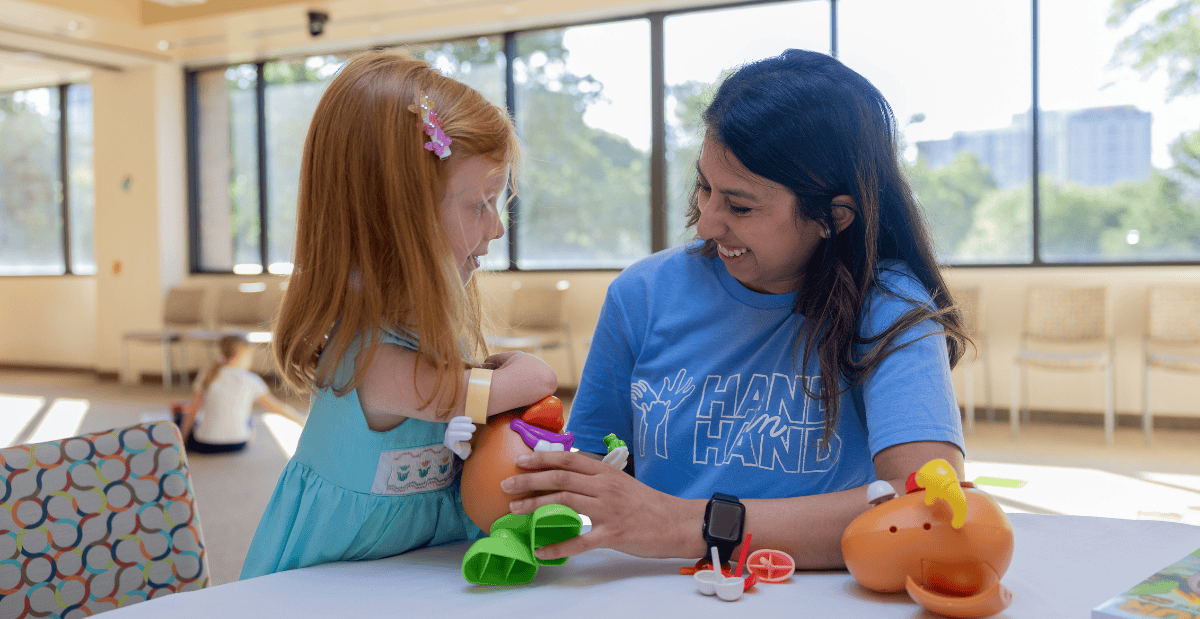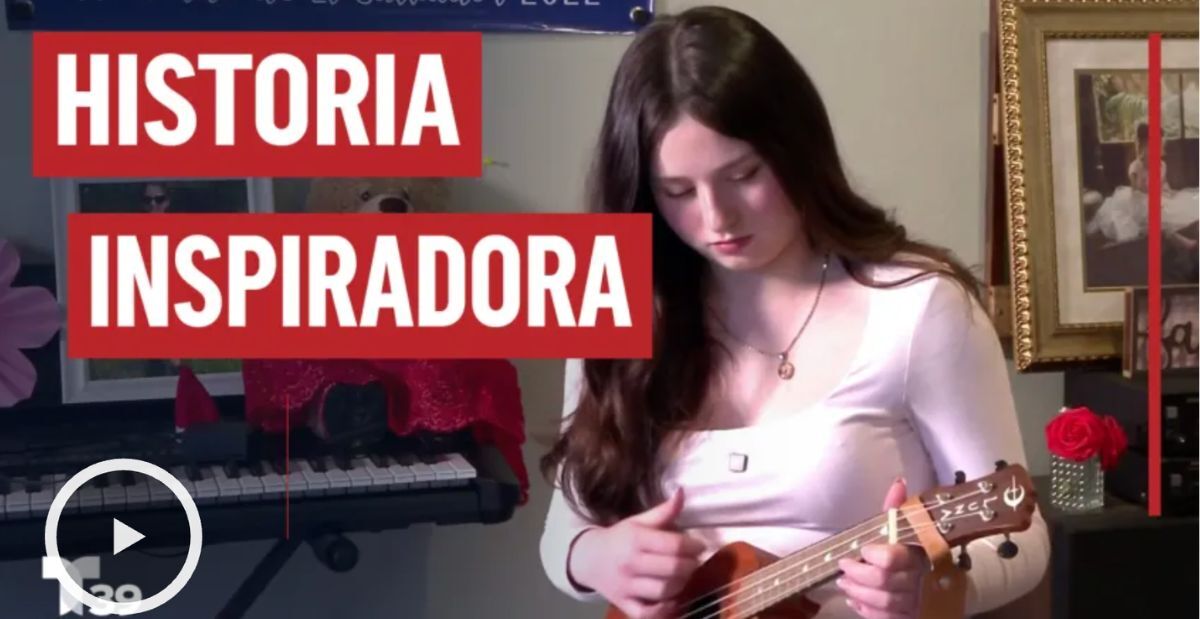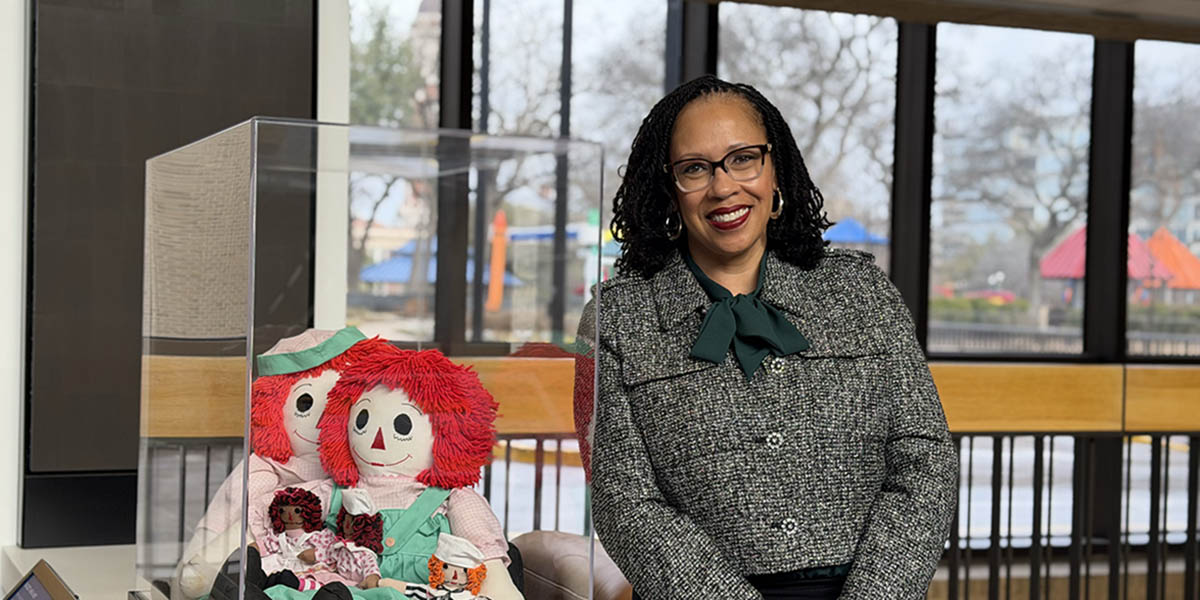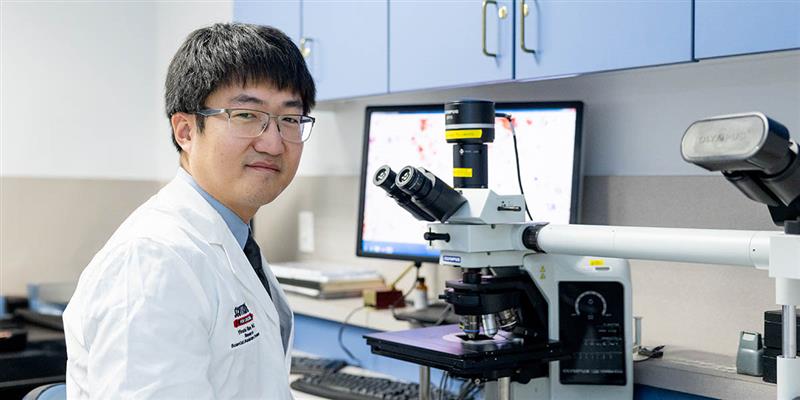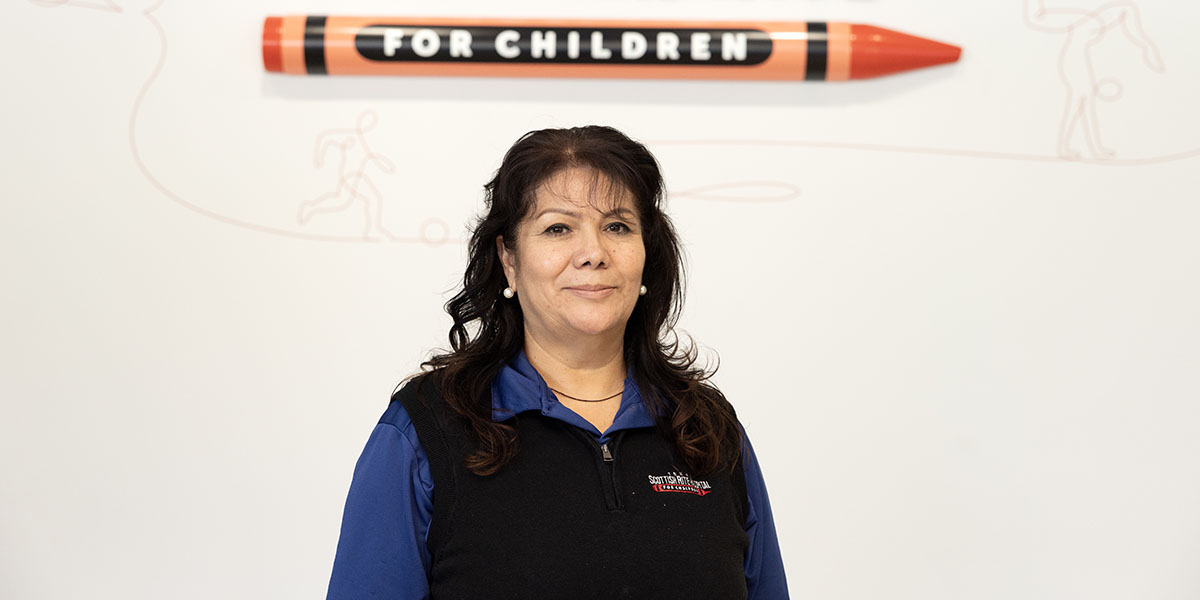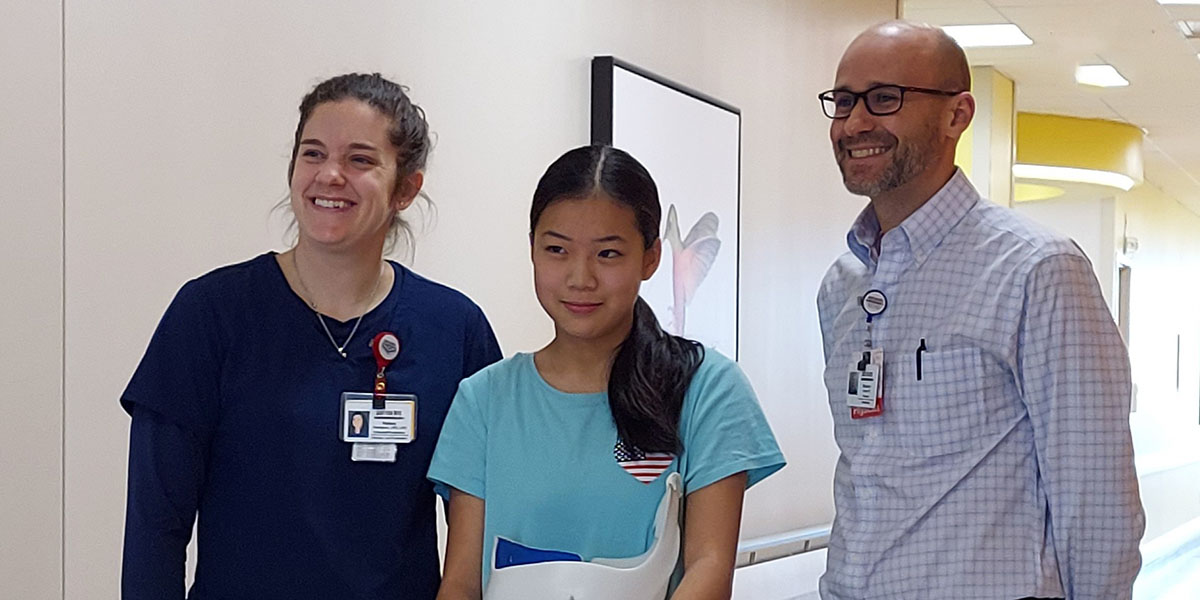When the first Hand in Hand Support Group met in April 2024, about 60 people gathered to connect, share stories and support one another. A little over a year later, that number has more than doubled.
Families primarily come from the Dallas–Fort Worth area, but some travel from San Antonio and Lubbock and even from neighboring states like Oklahoma and Louisiana. This incredible growth reflects the power of community.
Founded and directed by Scottish Rite for Children occupational therapist Amy Sitabkhan, O.T.R., O.T.D., the group offers a welcoming space for children with congenital hand differences and their families to connect, including children from birth to 8 years old.
“Typically, when families come into clinic, they’re asking similar questions,” Amy says. “They want the best for their child, and they are curious about how life will look as their child grows older — if they’re going to make friends, if they will be able to play sports and whether they’ll face bullying. I created the support group alongside my fellow occupational therapists and nurses as a way for families to build a community and have an opportunity to ask those questions, seek resources and normalize having an upper limb difference.”
The Hand in Hand Support Group also helps bridge the gap for parents of younger children and babies, offering an opportunity to network and find encouragement even before their children are old enough for Hand camp.
Between guest speaker sessions, families enjoy coffee chats and small group discussions, connect with adults who have hand differences and share their lived experiences.
For occupational therapist Lucy Ericson, O.T.R., C.H.T., the support group provides a meaningful way to connect with families beyond the clinic walls.
“It’s a rewarding opportunity to learn from others, share resources and empower families,” Lucy says.
From its humble beginnings to its rapid growth, Hand in Hand is more than just a support group — it’s a community of hope, learning and shared strength.


